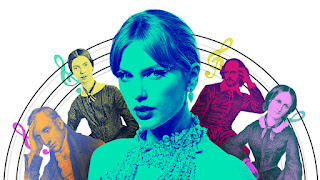Aarya Patil Week 4: Fake or Real
In this time and age, identity can be expressed in many different forms. Social media and digital platforms are prominent ways for people to express themselves. From sharing small moments on the internet to celebrating large milestones, we as humans curate our social media persona carefully. Social media offers us the opportunity to edit and “fix” our lives before letting other people see them, as we can choose what to reveal on the internet. Although people can struggle with being authentic on social media, it is important to remember that nobody’s life is as perfect as it seems.
An online presence can affect our mental health, which can lead to a shift in our identities. I’m certain that many people, especially teenagers, compare themselves with others they see online. In doing so, they may think that their lives aren’t interesting enough, or that they need to be doing more. It can also end up leading to “...increased sadness and isolation,” which affects who we will become as people. Comparing ourselves with others will not only affect us but also all the people around us. This raises serious questions about our relationship with the digital world and how it can impact our self-esteem. How much of our identity is affected by external validation, and how much comes from within us?
The dictionary definition for identity is, “the fact of being who or what a person or thing is.” Essentially, identity makes up who we are, and social media has an extremely heavy impact on this. The cartoon at the top showcases the true impact social media has on us. It depicts a father reading a piece of newspaper stating, “Social media tied to anxiety, depression.” He is trying to explain to his daughter, who is taking a mental health day from school, that if she does not leave her digital world, then she will not truly be taking a “mental health day.” Overall, social media can bring up a lot of issues surrounding mental health, which in turn shapes our identities.
Pros & cons: impacts of social media on mental health | BMC Psychology | Full Text
Dictionary Definition of Identity



Hi Aarya! I really enjoyed how your post relates to present-day society on how social media can affect our identities. I find that you thoroughly explained the various aspects on how identity is shaped by social media from being influenced to look “perfect” on social media to comparing oneself with others on any digital platform. I really like how you analyze and tie a cartoon to the same idea that centers around mental health. Mental health is important to be aware of as it impacts our quality of life and how we perform on a daily basis. There are many ways our health can be impacted and as technology advances, social media has taken up that role. Your blog effectively spreads awareness on how many people compare themselves to others just by what they do. It reminded me of how they are people on social media with so-called “perfect” lives that show how they are productive everyday through aesthetic posts of their daily lives. It made me learn that it’s not about focusing on what others do but focusing more on yourself and continuing to be yourself rather than becoming the people you see in the digital world. I definitely think you could start out with introducing the cartoon in the beginning and elaborate more on how focusing on being “perfect” on social media impacts our mental health which in turn shapes our identities. Overall, your blog was interesting to read and relate to!
ReplyDeleteHi Aarya! The structure of your blog especially stands out to me; you organize your blog into components detailing the common occurrence of teenage stress inflicted by social media. I appreciate your discussion of a concrete problem with teenage interactions—you coherently deliberate about the effects of social media on teenage mood. Your blog incorporates multiple perspectives on the issue of teenage stress and you even offer possible solutions to this widespread issue. You ascertain a consistent feeling of teenage comparison with one another, which I can also relate to. Although most information on social media is unreliable, the sentiment that is associated with looking at other individuals’ lives can make us feel that we are somehow lacking the experience of an eventful life. You use rhetorical questions to affirm your stance on the prevalence of social media in determining one’s self-worth as a teenager. This is a powerful choice to directly address the audience and demand an immediate response. It is human behavior to procrastinate on a meditative reflective process—therefore, your options of creating a strong narrative built behind a collective experience is valid. Overall, I appreciate the depth of your thought process in decrypting teenage social interactions and the effects of social media on this trend.
ReplyDeleteHi I love your structure of your blog it made a very cohesive and easy to read blog that dived into a very deep subject. I love how you were able to dig into each aspect of social media and how people feel that their lives arent “exciting enough” to show. I was able to relate as sometimes i feel that my life is kind of mundane while peoples lives on their stories are always so exciting. I feel that you missed an opportunity to dive deep into the cartoon at the beginning of your post. I do agree with you that social media causes lots of problems for the current generation. In your opinion what do you think is a good solution to these questions problems? For me I think it is important to educate the users of these platforms in order for them to understand that social media is only a highlight reel.
ReplyDelete